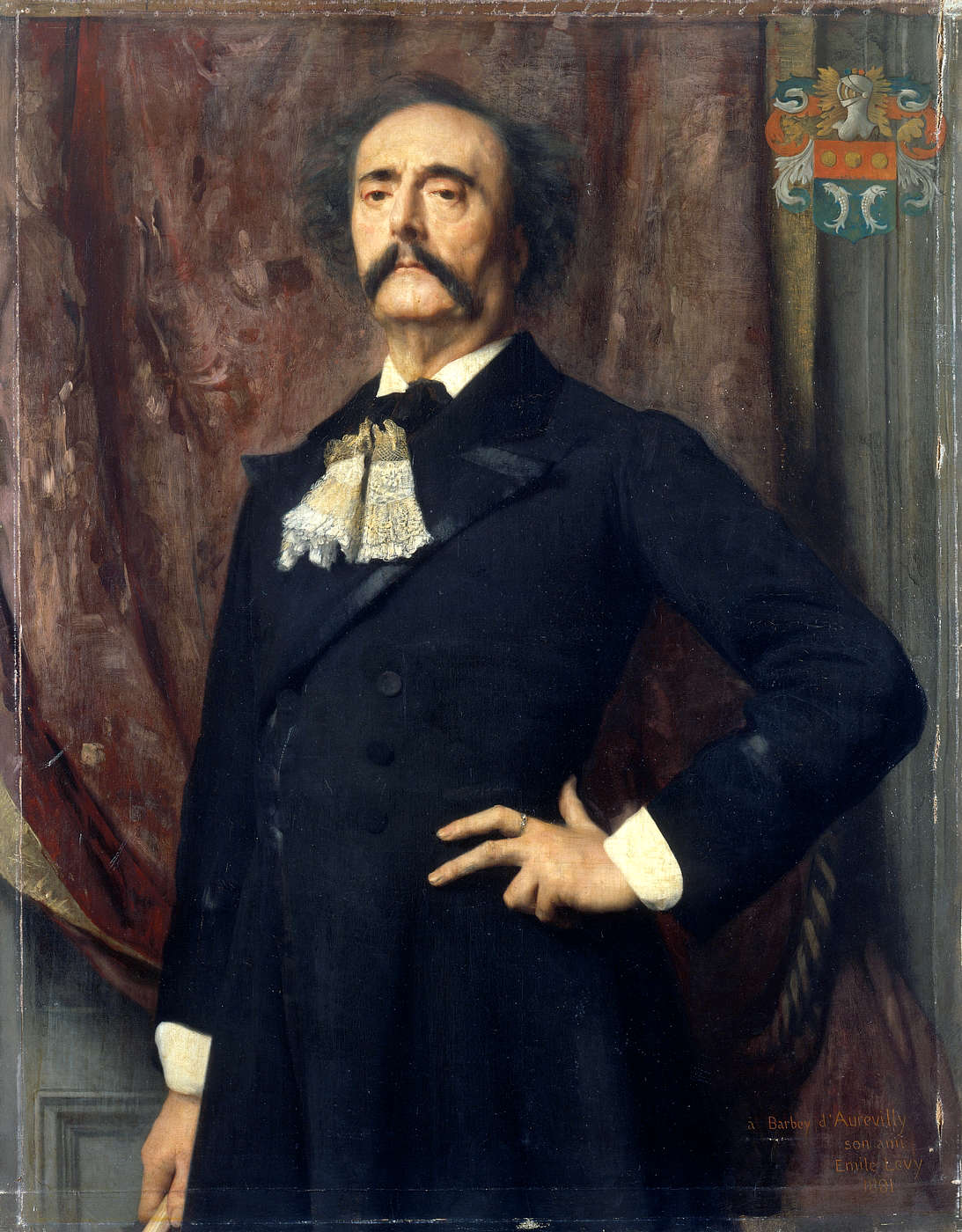
Jules Barbey d'Aurevilly
Jules-Amédée Barbey d'Aurevilly (2 November 1808 – 23 April 1889) was a French novelist, poet, short story writer, and literary critic. He specialised in mystery tales that explored hidden motivation and hinted at evil without being explicitly concerned with anything supernatural. He had a decisive influence on writers such as Auguste Villiers de l'Isle-Adam, Henry James, Leon Bloy, and Marcel Proust.
Barbey d'Aurevilly
Jules Amédée Barbey
2 November 1808
Saint-Sauveur-le-Vicomte, Normandy, French Empire
23 April 1889 (aged 80)
Paris, French Republic
Novelist, essayist, critic
1825–1889
Biography[edit]
Jules-Amédée Barbey — the d'Aurevilly was a later inheritance from a childless uncle — was born at Saint-Sauveur-le-Vicomte, Manche in Lower Normandy. In 1827 he went to the Collège Stanislas de Paris. After getting his baccalauréat in 1829, he went to Caen University to study law, taking his degree three years later. As a young man, he was a liberal and an atheist,[1] and his early writings present religion as something that meddles in human affairs only to complicate and pervert matters.[2][3] In the early 1840s, however, he began to frequent the Catholic and legitimist salon of Baronne Almaury de Maistre, niece of Joseph de Maistre. In 1846 he converted to Roman Catholicism.
His greatest successes as a literary writer date from 1852 onwards, when he became an influential literary critic at the Bonapartist paper Le Pays, helping to rehabilitate Balzac and effectually promoting Stendhal, Flaubert, and Baudelaire. Paul Bourget describes Barbey as an idealist, who sought and found in his work a refuge from the uncongenial ordinary world. Jules Lemaître, a less sympathetic critic, thought the extraordinary crimes of his heroes and heroines, his reactionary opinions, his dandyism and snobbery were a caricature of Byronism.
Beloved of fin-de-siècle decadents, Barbey d'Aurevilly remains an example of the extremes of late romanticism. Barbey d'Aurevilly held strong Catholic opinions,[4][5] yet wrote about risqué subjects, a contradiction apparently more disturbing to the English than to the French themselves. Barbey d'Aurevilly was also known for having constructed his own persona as a dandy, adopting an aristocratic style and hinting at a mysterious past, though his parentage was provincial bourgeois nobility, and his youth comparatively uneventful. Inspired by the character and ambience of Valognes, he set his works in the society of Normand aristocracy. Although he himself did not use the Norman patois, his example encouraged the revival of vernacular literature in his home region.
Jules-Amédée Barbey d'Aurevilly died in Paris and was buried in the cimetière du Montparnasse. During 1926 his remains were transferred to the churchyard in Saint-Sauveur-le-Vicomte.




